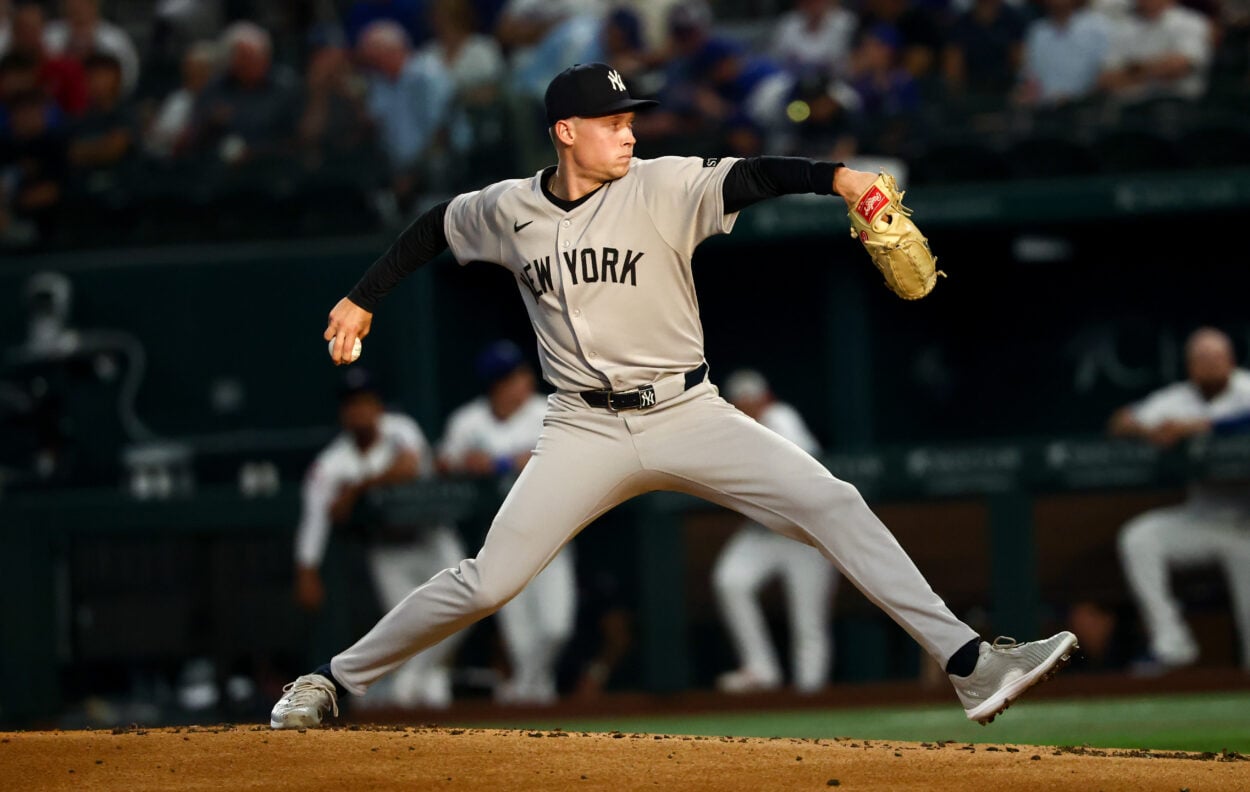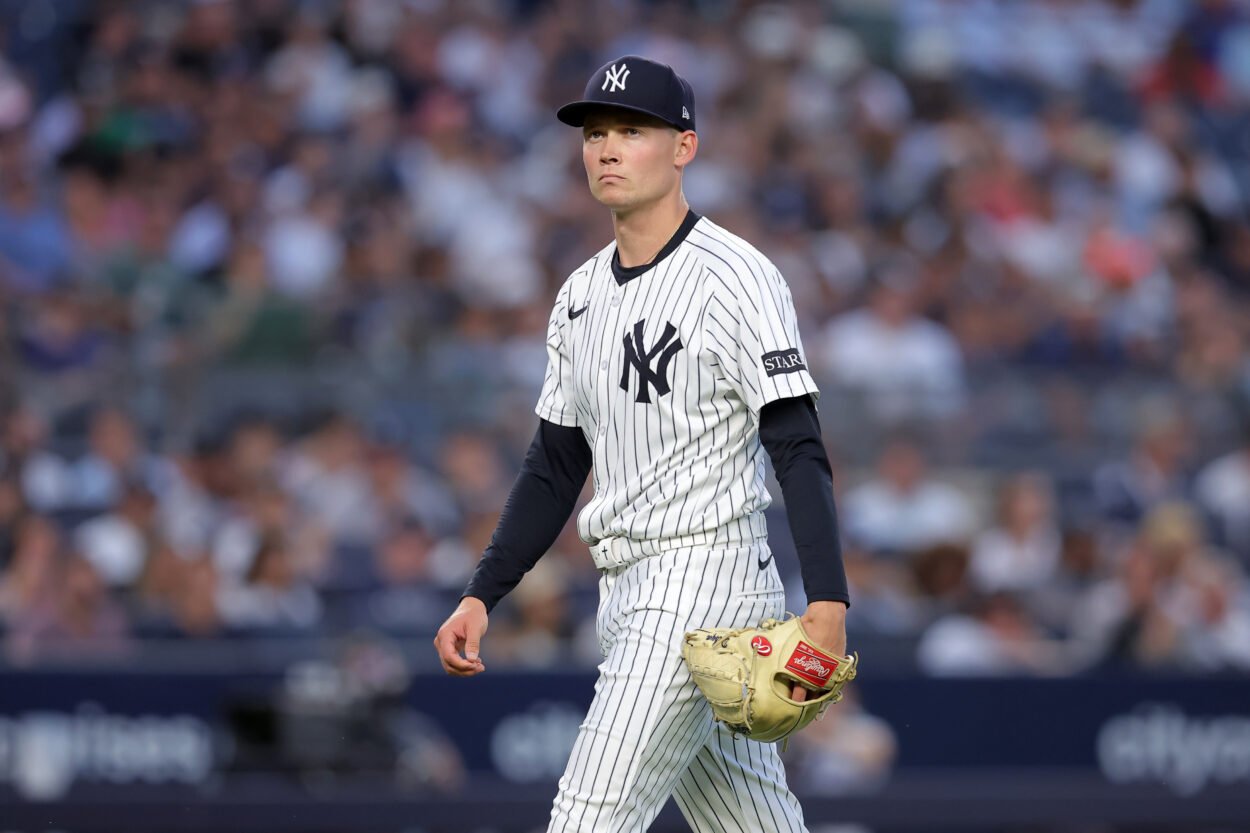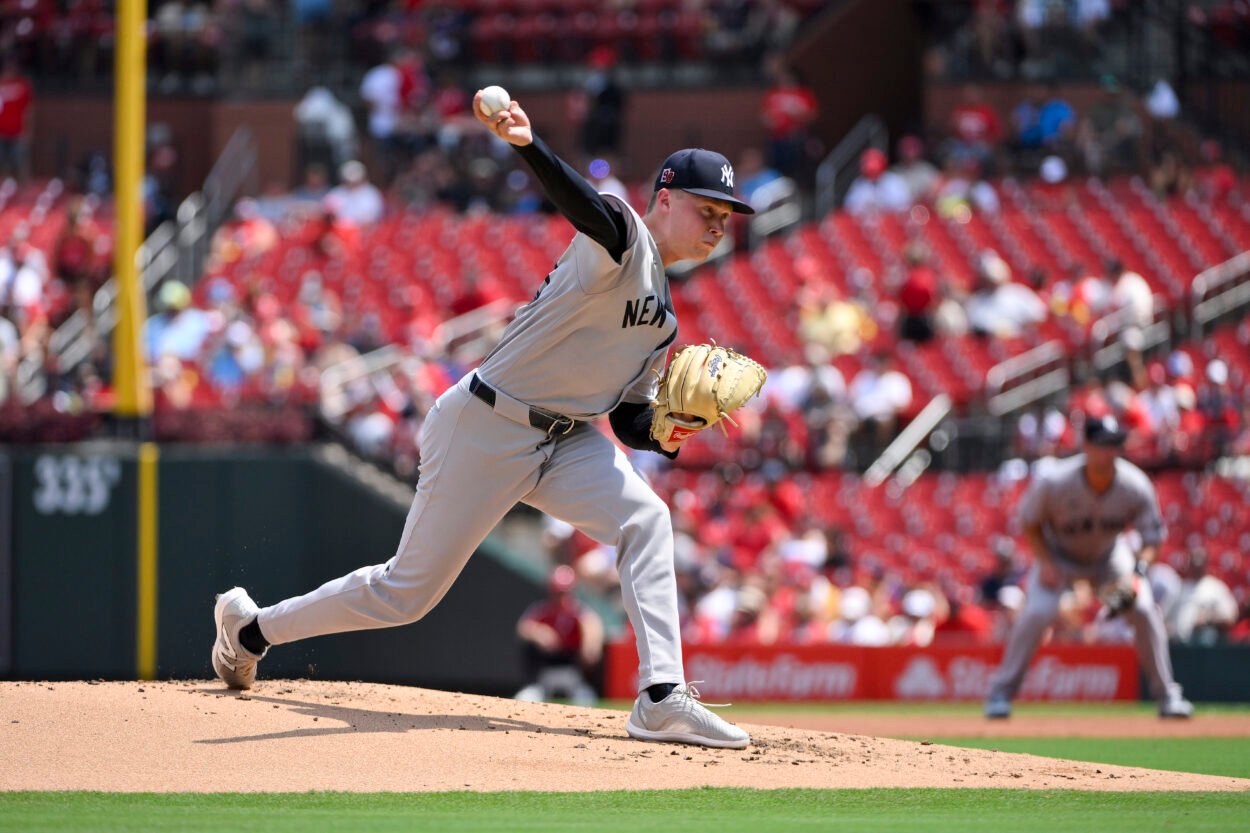
The New York Yankees entered the year relying on a rotation headlined by Gerrit Cole, but that plan unraveled before Opening Day. Cole never threw a pitch, Marcus Stroman imploded and was released, and Clarke Schmidt—after briefly shining—was sidelined in April with a shoulder issue and then later after undergoing Tommy John surgery. The rotation was a revolving door in the early stages of the season, and the Yankees were desperate for someone, anyone, to hold things together behind Max Fried and Carlos Rodon.
That’s when Will Warren stepped into the spotlight.
The rookie wasn’t a savior, but he was a steady hand when chaos ruled. For a team that saw one trusted arm after another vanish, Warren’s emergence felt like a small but meaningful victory.

Flashes of Talent, Lessons in Consistency
Warren’s season wasn’t spotless. His 4.44 ERA doesn’t leap off the page, but the underlying numbers—like a 4.07 FIP and 3.91 xFIP—hint at something more encouraging. They tell the story of a pitcher still learning how to harness his stuff, but one who clearly has the raw tools to succeed.
Over 162.2 innings, Warren piled up 171 strikeouts, proving his fastball-sinker-sweeper mix can overpower hitters when he locates it. The problem? Command lapses often turned clean outings into roller coasters. His 1.22 home runs allowed per nine innings ranked among the league’s highest, a reminder that MLB hitters punish even small mistakes.
His sweeper, one of the pitches that fuel his strikeout potential, embodies his season in miniature. The movement was electric—eye-catching enough to make hitters flinch—but the execution often wavered. Opponents hit it hard when he missed, posting a .405 wOBA and a .368 expected wOBA against it. For Warren, learning to command that pitch consistently could be the key to turning flashes into full performances.
What the Yankees See in Warren
Despite his volatility and his awful postseason, the Yankees see real value in Will Warren. At 26, he’s not an unpolished prospect anymore, but he’s also not maxed out. His stuff misses bats at a rate most back-end starters can’t replicate, and that’s a skill the Yankees can work with.

He’s the kind of pitcher who can bridge a rotation spot in April or swing into the bullpen come September as a long man. That flexibility matters, especially for a team trying to stabilize around Cole and Schmidt next year. Think of Warren as the reliable utility knife in a toolbox full of specialty tools—he may not be the showpiece, but he can get you through a rough job.
Looking Ahead
As the Yankees plan for 2026, Warren’s role remains fluid. Maybe he cracks the rotation, maybe he fills a long-relief role, or maybe his name surfaces in trade talks. Whatever the case, he’s earned his place in the conversation.
For a season defined by injuries and inconsistency, Will Warren gave the Yankees something they sorely needed: a glimpse of stability, and a reason to believe the next wave of arms might finally be ready to hold.
